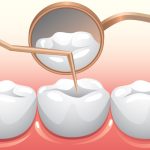Why Do Babies Grind Their Teeth? Understanding the Causes and Solutions
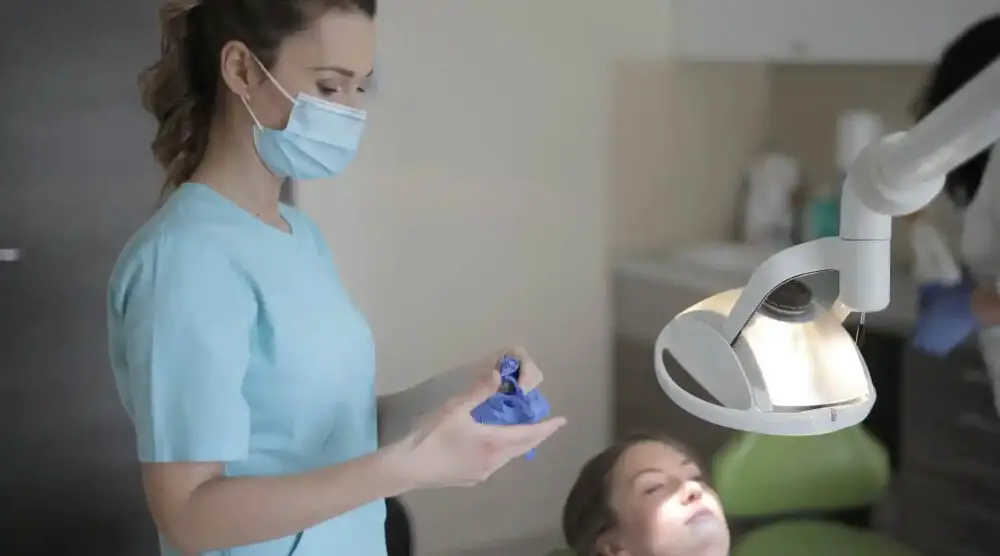
Babies are the epitome of innocence and joy. They bring a certain kind of happiness that is unparalleled to anything else. However, as cute as they may seem, they can also exhibit certain behaviors that may leave parents puzzled and concerned. One such behavior is teeth grinding or bruxism. While this condition is more commonly associated with adults, it is not uncommon for babies to grind their teeth. Although this is a common occurrence, parents should not ignore it as it could indicate an underlying issue. In this article, we will delve into the causes and solutions of why babies grind their teeth, to help parents better understand this behavior and how to address it. Teeth grinding in babies may seem concerning, but it is a common occurrence that affects many little ones. It may occur when the baby is asleep or awake, and it’s important for parents to understand the possible causes of this behavior. In some cases, it may be due to teething or jaw growth, while in others, it could be due to stress, anxiety, or even pain. Regardless of the cause, it’s important for parents to take notice and address this behavior to prevent any long-term damage to the baby’s teeth. In the following sections, we will explore the different causes of teeth grinding in babies and provide solutions to help parents alleviate this behavior.
Teeth grinding or bruxism in babies is a common phenomenon that may occur during sleep or even when they are awake. The exact cause of this behavior remains unknown, but it is believed to be associated with the development and emergence of teeth. The discomfort and irritation of teething may lead to grinding as a way to relieve the pressure on their gums. However, other factors like anxiety, stress, and even nutritional deficiencies may also contribute to this behavior in babies. While most cases of teeth grinding are harmless and temporary, it is essential to monitor your baby’s teeth and discuss any concerns with a pediatric dentist.
Understanding the causes and solutions of teeth grinding in babies is crucial in promoting their oral health and overall well-being. Teeth grinding in babies may be caused by a variety of factors, including teething, anxiety, and developmental disorders. By identifying the underlying cause of the problem, parents and caregivers can implement appropriate solutions to alleviate discomfort and prevent complications. Some solutions may include offering teething toys, practicing relaxation techniques, or seeking medical attention if necessary. Fostering a better understanding of the causes and solutions of teeth grinding in babies is essential in promoting good oral health and ensuring that babies are happy and healthy.
Normal Developmental Milestones

Normal developmental milestones refer to the physical, cognitive, and social skills that babies and young children acquire as they grow and mature. These milestones are important markers of typical child development and can help parents and healthcare providers identify potential delays or concerns. For instance, normal developmental milestones in infants may include lifting their heads, rolling over, sitting up, crawling, and walking. Toddlers may develop language skills, engage in imaginative play, and demonstrate improved coordination, while preschoolers may show greater independence, social skills, and problem-solving abilities. Understanding these milestones can help parents anticipate and support their child’s needs, as well as detect any potential developmental issues early on. In the context of teeth grinding, normal developmental milestones may also be relevant. For example, babies may begin to teethe and develop their first teeth around six months of age, which can cause discomfort and lead to teeth grinding. However, as children grow and develop, teeth grinding should generally decrease and eventually stop altogether. If teeth grinding persists beyond the toddler years, it may be a sign of an underlying issue and warrant further evaluation.
Babies may grind their teeth during developmental milestones due to a variety of reasons. One of the most common causes is teething, which can lead to discomfort and a desire to relieve the pressure by grinding their teeth together. Another reason could be due to the development of motor skills, as babies explore the movements of their jaw and mouth. Additionally, stress or anxiety can also lead to teeth grinding in babies, as they may not know how to cope with these emotions. It is important for parents to monitor their baby’s teeth grinding and consult with a pediatrician if it becomes excessive or problematic.
Developmental milestones are a crucial aspect of a child’s growth and development. These milestones can be physical, cognitive, or social-emotional. Some examples of physical developmental milestones include rolling over, sitting up, crawling, walking, and running. Cognitive developmental milestones include recognizing familiar faces, understanding cause and effect, and developing problem-solving skills. Social-emotional milestones consist of smiling, making eye contact, and forming attachments to caregivers. These milestones are important indicators of a child’s progress and can help parents and caregivers identify areas of potential concern. It is important to note that every child develops at their own pace, and there is a broad range of what is considered typical development.
As a parent, it is normal to be worried about your baby’s health and development. When it comes to teeth grinding, there are certain signs that may indicate a problem. If your baby grinds their teeth excessively or with a lot of force, it may lead to tooth damage or jaw pain. Additionally, if the habit persists beyond the age of three, it may be a sign of an underlying medical condition. Other symptoms to look out for include earaches, headaches, and facial pain. If you notice any of these signs, it is essential to consult a pediatric dentist or doctor for a proper diagnosis and treatment plan. Early intervention can help prevent potential complications and ensure your baby’s oral health and overall well-being.
Pain and Discomfort
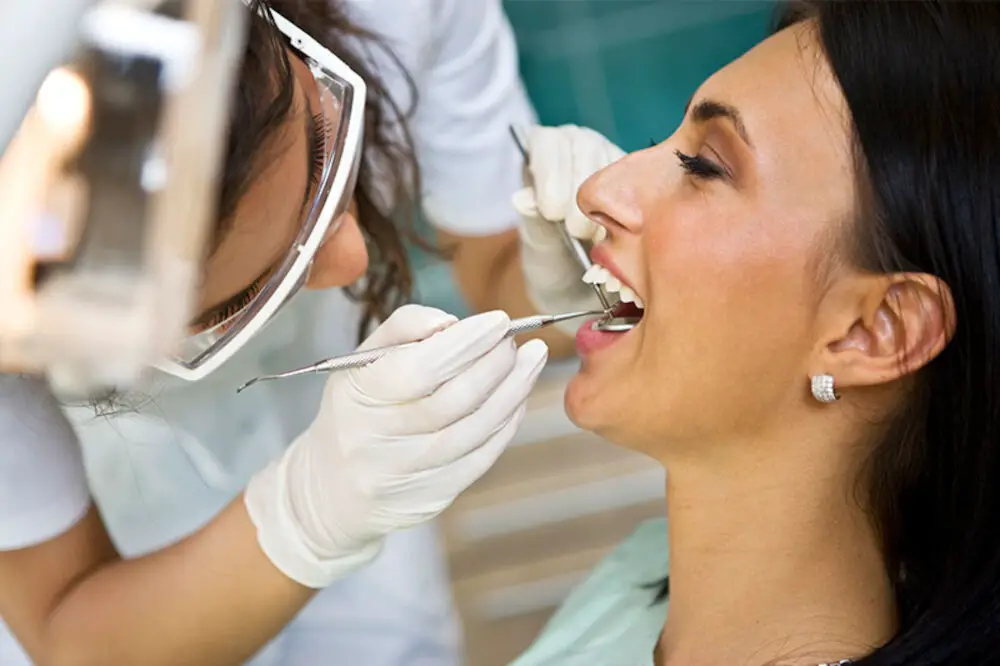
Pain and discomfort are two common reasons why babies grind their teeth. Infants and young children may grind their teeth due to the discomfort associated with teething. When a baby is teething, they may feel pain, pressure, and discomfort in their gums, which can lead them to grind their teeth as a way to alleviate these symptoms. Additionally, babies may grind their teeth if they have an ear infection or other type of infection that is causing pain or discomfort in their mouth or jaw. Grinding their teeth can provide a sense of relief and comfort that helps to alleviate some of these uncomfortable sensations. It’s important to note that pain and discomfort are not the only factors that can cause babies to grind their teeth. Stress and anxiety can also play a role in teeth grinding. Babies who are feeling stressed or anxious may grind their teeth as a way to cope with these emotions. Additionally, certain medical conditions such as cerebral palsy or autism can also cause teeth grinding in infants and young children. Understanding the root cause of your child’s teeth grinding is important in order to determine the best course of action to address the issue and alleviate their discomfort.
Pain and discomfort are common triggers for teeth grinding in babies. Babies may grind their teeth as a way to alleviate the discomfort caused by teething, ear infections or other painful conditions. Pain can also cause tension in the jaw muscles, leading to grinding. In addition, babies may grind their teeth as a response to stress or anxiety, which can also cause discomfort. It is important for parents to identify the underlying cause of the pain or discomfort and address it appropriately to help reduce teeth grinding in babies. Providing a teething toy or a cold washcloth to chew on, or seeking medical attention for the underlying condition, can help alleviate the discomfort and reduce teeth grinding.
Babies can experience pain and discomfort due to various reasons, such as teething, ear infections, colic, gas, constipation, and acid reflux. Teething is a common cause of pain in babies, which occurs when their first teeth start emerging through their gums. It can cause swelling, redness, and soreness in the gums, leading babies to chew on objects or grind their teeth to relieve the pain. Ear infections can also cause pain and discomfort, as they cause a build-up of fluid in the ear, leading to pressure and pain. Colic, gas, constipation, and acid reflux are other common causes of discomfort in babies, leading to fussiness, crying, and irritability. It is essential to identify the cause of pain and discomfort and seek appropriate medical attention to provide relief to the baby.
Pain and discomfort can be alleviated through various methods, depending on the cause. For babies who grind their teeth, some techniques that may help reduce discomfort include massaging the jaw muscles, applying a warm compress to the face, or giving the baby a teething toy to chew on. In more severe cases, a pediatric dentist may recommend a mouthguard to protect the teeth and reduce grinding. Additionally, practicing good sleep hygiene, such as establishing a regular sleep schedule and creating a calming bedtime routine, can also help reduce stress and alleviate discomfort associated with teeth grinding. It’s important to consult a healthcare professional for guidance on the best course of action for addressing pain and discomfort.
Stress and Anxiety
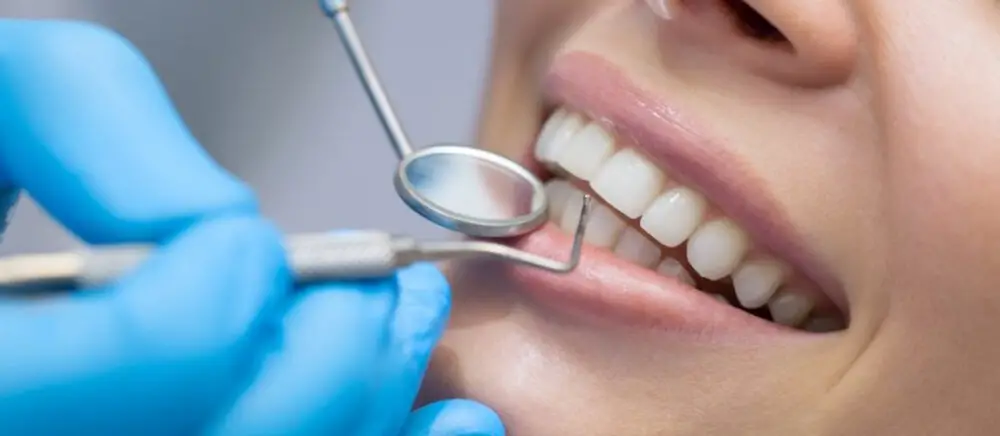
Stress and anxiety can be significant factors that contribute to teeth grinding in babies. Like adults, babies can experience stress and anxiety, which can lead to the involuntary grinding of teeth. Babies who are experiencing stress and anxiety may grind their teeth as a way to cope with their emotions. Stressful events such as changes in their environment, such as moving to a new home, starting daycare or school, can cause anxiety and lead to teeth grinding. Additionally, babies who are teething or experiencing discomfort in their mouth may grind their teeth as a way to alleviate the pain. Parents should monitor their baby’s behavior and look for signs of stress or anxiety that may be contributing to teeth grinding. It is essential for parents to address the root cause of their baby’s stress and anxiety to prevent teeth grinding from becoming a habit. There are several strategies that parents can use to help their baby cope with stress and anxiety, such as creating a relaxing bedtime routine or comforting them during stressful situations. Additionally, parents can provide their babies with teething toys, which can help alleviate discomfort and prevent teeth grinding. If teeth grinding persists, parents should consult with their pediatrician, who may recommend further evaluation or treatment. By addressing the root cause of their baby’s stress and anxiety, parents can help prevent teeth grinding and promote overall oral health.
Stress and anxiety can cause teeth grinding in babies as the physical act of grinding the teeth provides a sense of relief and comfort. Babies who are experiencing stress or anxiety may grind their teeth as a coping mechanism to alleviate their discomfort. Additionally, stress and anxiety can cause muscle tension in the jaw, which can lead to teeth grinding. It is important for parents to identify the sources of stress or anxiety in their baby’s life and work to address these issues to prevent long-term teeth grinding and potential dental damage.
Babies can experience stress and anxiety due to a variety of reasons, including changes in routine, separation from caregivers, loud noises, unfamiliar environments, and physical discomfort. Teething, illness, and hunger can also cause stress in babies, leading to fussy behavior, sleep disturbances, and even teeth grinding. Additionally, babies may pick up on the stress and emotions of those around them, further exacerbating their own feelings of anxiety. It is important for caregivers to be aware of these potential stressors and take steps to minimize them, such as providing comfort and soothing techniques, maintaining a consistent routine, and creating a calm and safe environment for the baby.
Babies, like adults, can experience stress and anxiety, and it’s important for parents and caregivers to help them cope. One way to do this is by creating a calming environment, free of loud noises and bright lights. Additionally, providing a consistent routine and structure can help babies feel secure and reduce their stress levels. Parents can also try using soothing techniques, such as singing or rocking, to help their baby relax. It’s important to remember that babies can pick up on their caregiver’s stress and anxiety, so taking care of your own mental health is also essential in helping your baby cope. If you notice your baby grinding their teeth, it could be a sign of stress, and it’s important to address the underlying cause and seek guidance from a healthcare professional.
Medical Conditions

Medical conditions can be a contributing factor to why babies grind their teeth. One such condition is obstructive sleep apnea (OSA), which occurs when the airway is partially or completely blocked while sleeping. This can lead to snoring, gasping for air, and teeth grinding. OSA in babies is often caused by enlarged tonsils or adenoids, which can be surgically removed to alleviate the symptoms. Another medical condition that may cause teeth grinding in babies is gastroesophageal reflux disease (GERD). GERD occurs when stomach acid flows back up into the esophagus, causing discomfort and irritation. This discomfort can lead to teeth grinding as a way for the baby to alleviate the pain. It is important to note that while medical conditions may contribute to teeth grinding in babies, they are not always the sole cause. Oftentimes, a combination of factors, such as teething, stress, and anxiety, can also play a role. Therefore, it is important to consult with a pediatrician or dentist to properly diagnose the cause of teeth grinding in babies and determine the best course of treatment.
Medical conditions can be a contributing factor to teeth grinding in babies. For instance, gastroesophageal reflux disease (GERD) can cause discomfort and pain in the throat, leading to teeth grinding as a way of relieving the discomfort. Respiratory problems such as asthma can also cause teeth grinding in babies as they try to open up their airways. Additionally, teething pain can be a significant cause of teeth grinding in babies as they try to alleviate the discomfort. It is important to consult a pediatrician if the teeth grinding persists or is accompanied by other symptoms such as fever or disrupted sleep.
Teeth grinding or bruxism is a common condition among babies that can be caused by various factors. One of the most prevalent medical conditions associated with teeth grinding in babies is gastroesophageal reflux disease (GERD), which results in stomach acid flowing back into the esophagus and irritating the teeth. Another medical condition linked to teeth grinding is obstructive sleep apnea, where the airway is blocked, causing the baby to wake up and grind their teeth. Additionally, ear infections and teething pain can also lead to teeth grinding in babies. It is important for parents to be aware of these medical conditions and seek appropriate treatment to prevent the potential long-term effects of teeth grinding.
Medical conditions are diagnosed and treated through a variety of methods, depending on the specific condition in question. For example, in the case of teeth grinding in babies, a dentist or pediatrician may perform a physical examination of the mouth to check for any signs of damage or misalignment. They may also ask about the child’s medical history or any medications they are taking. Treatment options may include addressing any underlying health or behavioral issues, such as anxiety or sleep apnea, that may be contributing to the teeth grinding. Additionally, the dentist or pediatrician may recommend the use of a mouthguard or other device to protect the teeth and prevent further damage. Ultimately, the goal of diagnosis and treatment is to alleviate symptoms, prevent complications, and improve overall health and quality of life.
Teeth grinding in babies, medically known as bruxism, is a common condition that can occur due to several factors. One of the leading causes is teething, as the pain and discomfort experienced by the baby can lead them to grind their teeth as a coping mechanism. Other potential causes include stress or anxiety, misalignment of the teeth or jaws, and neurological issues. Additionally, certain medications or medical conditions can also contribute to bruxism in infants. Identifying the root cause of the problem is crucial in finding an effective solution to alleviate the symptoms and prevent potential dental complications.
It is crucial to seek medical advice if you are concerned about your baby grinding their teeth. Grinding teeth in babies can be a normal developmental stage, but it can also be a sign of underlying medical conditions such as sleep apnea, ear infections, or neurological disorders. Consulting a medical professional can help identify the root cause and determine the appropriate treatment plan. Ignoring the problem can lead to long-term complications such as tooth damage, jaw pain, and sleeping disorders. Therefore, seeking medical advice as soon as possible can help ensure that your baby receives the necessary care and attention to prevent any further complications.
For parents struggling to help their babies stop grinding their teeth, there are several tips that can be helpful. First, try to identify and address any potential sources of stress or anxiety in the child’s life. This may involve adjusting their sleep schedule, reducing exposure to loud or stimulating environments, or offering comfort and reassurance during times of stress. Additionally, providing the child with a soft, chewy toy or teething ring can help redirect their grinding behavior. Finally, be patient and consistent in your efforts to address the issue, as it may take some time for the child to break the habit. With these strategies, parents can help their babies stop grinding their teeth and ensure healthy oral development.
Conclusion
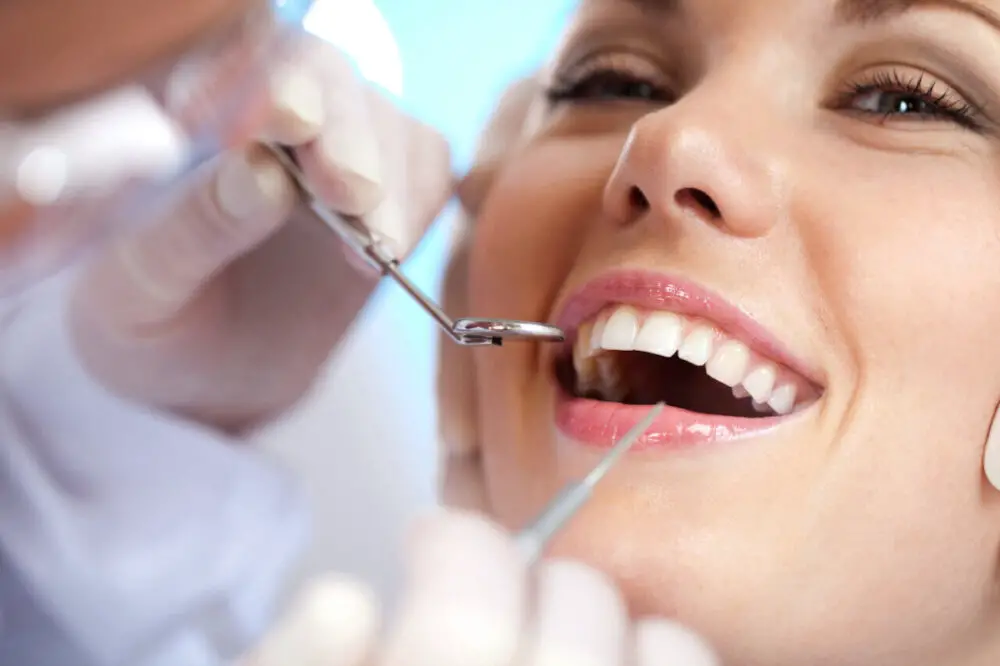
In conclusion, babies grinding their teeth is a common phenomenon that can be caused by a variety of factors, including teething, stress, and developmental issues. While it may be concerning for parents to witness their child grinding their teeth, there are a number of solutions available to help alleviate the issue. These solutions can include providing teething toys, reducing stressors in the child’s environment, and visiting a pediatric dentist to ensure that there are no underlying dental issues that could be contributing to the problem. By understanding the causes and solutions of teeth grinding in babies, parents can help their child to feel more comfortable and avoid any long-term damage to their teeth.




